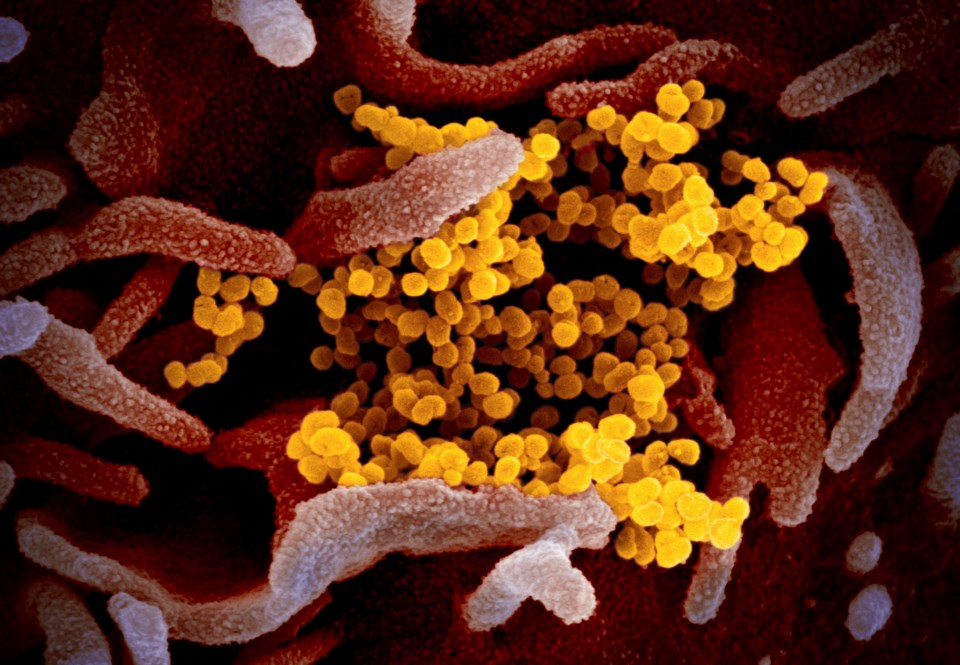Thousands of scientists around the world are working on problems raised by the COVID-19 pandemic. Here is a summary of some recent research from peer-reviewed academic journals and scientific agencies:
---
An opinion piece in the journal Science is criticizing political pressures that make scientific collaboration more difficult. The author writes that nuance and candour from governments regarding the pandemic are almost non-existent. He notes U.S. government funding was recently yanked from an American researcher who was working with a colleague in China on the origin of the novel coronavirus. The author writes: "Protecting the world from (COVID-19) can’t happen without international scientific collaboration. Progress on vaccines in China and the United States should make us optimistic that science will solve this problem, but the actions of the governments involved are not equally inspiring."
---
A paper in the Canadian Medical Association Journal has examined the relationship between latitude and COVID-19. In reaction to observations that northern countries have suffered more from the virus, the researchers tried to find a link between infection rate and climate. They looked at 144 countries and 375,609 cases for connections between COVID-19 cases and latitude, temperature, humidity, school closures, restrictions of mass gatherings and social distancing. They found little connection with temperature, but a weak link between lower humidity and higher infection rates. Links with public-health measures were much stronger.
---
A paper in the journal Nature suggests that people who have recovered from COVID-19 could return to the general population to help reduce the rate of transmission of the virus. Its model assumes that people who have recovered are immune to reinfection for at least some time and will be able to interact safely with others. These recovered people could then increase their interactions relative to those who haven't built up an immunity. Using such people as a "shield" between other people could both reduce deaths and enable some social activities to resume, it says.
---
Research published in the European Heart Journal may have figured out why men have been suffering more from COVID-19 than women. It says men have higher concentrations of the enzyme ACE2 in their blood. Since ACE2 is the doorway the coronavirus uses to enter and infect healthy cells, this may help to explain why men are more vulnerable to COVID-19. ACE2 is found in the lungs, heart, kidneys and the tissues lining blood vessels, but there are particularly high levels in the testes.
---
Published research in Computer Methods in Biomechanics and Biomedical Engineering looks at the link between travel restrictions and the spread of COVID-19. It suggests that travel bans in Europe slowed but didn't stop the spread of the pandemic because they came too late — a week after every country had already reported cases of COVID-19. The results suggest the outbreak's pattern closely followed air passenger patterns. From its European origin in Italy, the novel coronavirus spread rapidly via the strongest network connections to Germany, Spain and France, while slowly reaching the less connected countries, Estonia, Slovakia and Slovenia.
---
Don't look for a COVID-19 baby boom, says the Journal of Psychosomatic Obstetrics & Gynecology. Researchers surveyed 1,482 Italian men and women in stable heterosexual relationships between the ages of 18 and 46. It found a significant decline in overall well-being scores. Although about 18 per cent of respondents had been planning to have a child before the pandemic, more than a third abandoned those plans over economic and health worries. Of the 81 per cent who hadn't planned on conceiving, a few more than one in 10 said the pandemic had given them more desire to be a parent because of a desire for change and something positive. Only 4.3 per cent of those people actually acted on that desire, the survey says.
---
This report by The Canadian Press was first published May 11, 2020
Bob Weber, The Canadian Press


